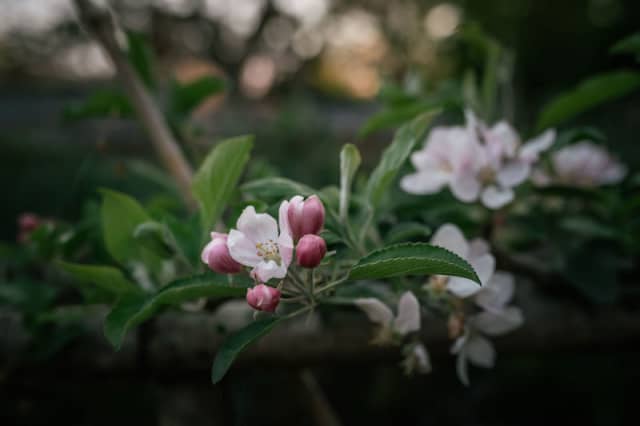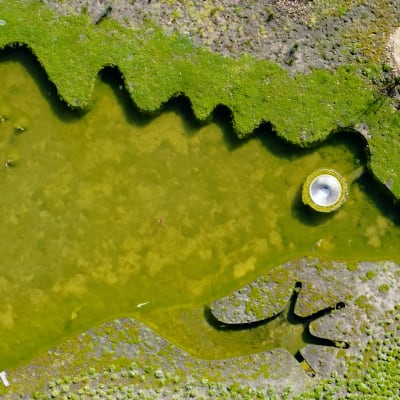Unsure where to start on sowing, growing and working on your green space as the weather warms? Our gardening experts reveal their top tips for getting started.

With final plans for our celebratory Garden Day Weekend over the early May bank holiday falling into place, we thought now was a good time to quiz our experts on their essential gardening jobs for spring. From sowing seeds to lawn care and protecting our precious pollinators, getting outside to nurse life, beauty and nourishment into existence is a joyful feeling that’s hard to beat.
Sow the Seeds
“In May, sow vegetable seeds for the summer season, such as dwarf or climbing beans, runner beans, sweetcorn, courgettes, pumpkins and squash in the greenhouse or on a windowsill,” says Ellie Dunn, Kitchen Gardener here at The Newt. “This is the best time to sow these crops because they need warmer temperatures to thrive.
Mulching Orders
“My top spring tip for tree care is simply to lay a 10 cm layer of wood chip mulch underneath trees, ideally extending to the edge of the tree crown,” says our Head of Woodland, Raef Johnson. “This serves many purposes, such as retaining soil moisture by reducing evaporation, meaning any rain or watering that happens in the summer will be more beneficial to the tree. It helps suppress weed and grass growth, which will compete with the tree for nutrients and moisture. It also improves soil: as the mulch breaks down it will slowly aerate and feed the soil. On top of all that, it looks quite neat too!”
Border Control
“The most important things from an ornamental point of view are to get an early weed in before you cannot get between your plants, and to stake your plants now, before they get too tall,” says Deanne Lewis, our Deputy Head of Ornamental Gardens. “This is because it is very hard to prop up a plant once it has fallen over, and it is easier to get between your plants at this time of year to insert the stakes. We use hazel to stake, but you can use willow or dogwood, or premade/metal supports purchased from your local garden centre.”

Love Your Lawn
“Spring is here, and you’ll be noticing your lawns coming to life again after a rather wet and cold winter,” says Cliff Robinson on the Turf Team. “We’re seeing more moss than normal years too, so it’s time to get your rakes out and give your grass a good old clear out, removing the build-up of thatch (dead grass and other organic matter), allowing nutrients, moisture and air in more freely to be taken up by the roots, which in turn gives us a healthier sward.
“First, you’ll need to cut the lawn when it’s as dry as possible,” explains Cliff. “If the grass is long, cut it over two weeks, lowering the height of the cut each time so as not to stress the grass.”
“Then, you’re ready to ‘scarify’,” he says. “Use a spring-tine rake to gently collect the thatch from the lawn - you’ll soon notice the debris coming out. Don’t be too rough with your raking as you want to leave some thatch in to protect the lawn. Collect what’s accumulated on the surface and put it into compost. Next, a light overseed, feed and voila – you’ll have a lovely new lawn coming to your garden very soon!
“Alternatively, with No Mow May not too far off, leave some areas wild in order to boost the flowers and nectar available for pollinating insects such as bees, butterflies and moths.”
“Continue to sow spinach, radish, beetroot and lettuce directly outside - and thin them as they develop so that you get good-sized vegetables in the end. You can add any thinnings to salads, so there's no need for any waste!”
Bring the Buzz
“When it comes to gardening for insects, I’ve got three top tips,” says our resident entomologist, Tom Oliver.
“Be a bit untidy - leave piles of grass cuttings, leaf litter and dead wood in your garden to provide habitat and food sources for a large variety of different insect species. Second, sow wildflower seeds to ensure there is a broad diversity of flowering plants throughout the year to provide food for pollinators. Lastly, don’t use chemicals in your garden unless absolutely necessary. Even chemicals that do not directly target insects such as weedkiller and fungicides will have a detrimental effect.”
• Garden Day Weekend runs over the early May bank holiday, from 4 - 6 May. Now’s the perfect time to renew or become a Newt member, be inspired and share in the joys of our Somerset garden.




